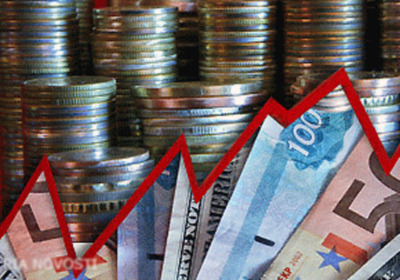RUSSIALINK: “Econ Ministry puts together proposals to boost investment in Russia by 70%” – Interfax

MOSCOW. Dec 9 (Interfax) – Russia’s Economic Development Ministry has put together a package of proposals that are supposed to help ensure that capital investment grows by at least 70% by 2030 compared to the 2020 figure, as prescribed by one of the country’s national goals.
The list of proposals was laid out in a letter that First Deputy Economic Development Minister Andrei Ivanov sent to First Deputy Prime Minister Andrei Belousov, a copy of which was seen by Interfax. The Economic Development Ministry confirmed the authenticity of the letter, which said that the proposals were discussed at meetings with business associations.
Capital investment totalled 19.3 trillion rubles in 2019 and in 2020 the figure is forecast to drop to 19.1 trillion rubles in current prices or 18.03 trillion rubles in 2019 prices, the ministry said. “In order to ensure the growth of the figure by 2030 in line with the target level, the amount of capital investment will have to increase by at least 12.6 trillion rubles (in 2019 prices),” the ministry said.
A large portion of the proposals concern the investment protection and promotion agreements (IPPA) that have been much talked about this year. In order to raise financing for IPPA projects, the ministry proposed to include bonds issued for such projects in the Central Bank of Russia’s (CBR) lombard list.
It also proposed to allow for the possibility of stabilizing mineral extraction tax (MET) rates at the 2020 level in regard to certain solid mineral resources, such as IPPA projects at new deposits for the duration of the IPPA; IPPA projects at existing deposits that are more than 1% depleted; companies implementing an IPPA project that is also the subject of a special investment contract (SPIC) signed before December 31, 2020; and stabilization of taxation conditions for reverse excises on ethane, liquefied petroleum gas (LPG) and naphtha.
The ministry proposed to extend the “stabilization clause” of IPPA to projects being carried out under concession agreements, public-private partnership agreements, special investment contracts, agreements on activities in priority social and economic development areas and other agreements by expanding the list of agreements that can be recognized as linked to an IPPA.
The ministry also proposed to introduce a variety of IPPA to stimulate the implementation of projects in priority areas of exports, infrastructure, the digital economy and technological development, and provide for them an expanded list of expenses recoverable through taxes.
In order to maintain the investment programs of companies investing in IPPA projects in the petrochemical sector, the ministry also proposed a mineral extraction tax deduction on hydrocarbons of up to 50% of capital investment actually made by parent companies.
One of the ministry’s proposals for raising financing involves the “development and introduction of the mechanism of a targeted project emission (emission of money by the Bank of Russia in order to reimburse the capital expenditures of an investor in an economically important investment project, including with the use of the digital ruble) for investment projects of national importance using escrow accounts.”
Such a bill was already discussed in 2019 and the CBR opposed it, saying it could fan inflation and jeopardize macroeconomic stability and the CBR’s independence.
In order to develop shareholder financing instruments, the ministry proposed to remove legislative restrictions on the placement of preferred shares in excess of 25% of the equity of non-public joint-stock companies and eliminate this restriction for newly created public companies.
The ministry also proposed to introduce a regressive tax on dividends for private individuals who invest in shares or stakes in companies for an extended period. For example, it proposed to tax dividends on shares held for over three years at a rate of 8%, those hold for over 5 years at 3% and those held for more than seven years at a zero rate.
The ministry’s package of measures assesses a total of 149 proposals from business associations and investment development agencies to increase capital investment. The ministry assessed their effectiveness and difficulty of implementation according to a three-point scale.
